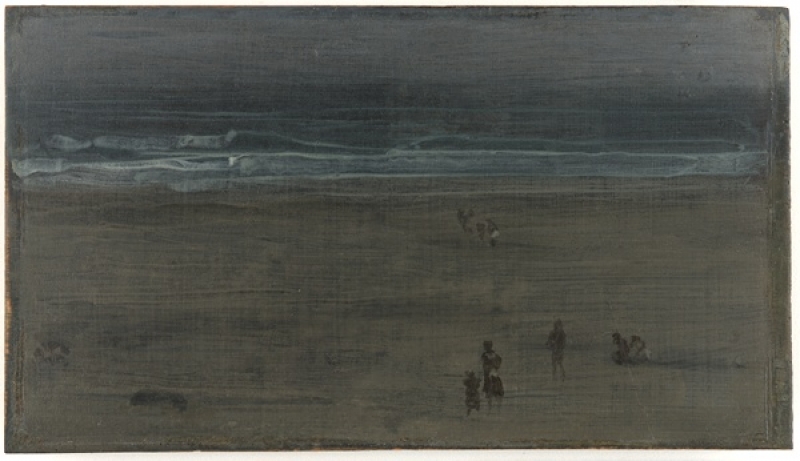Home > Catalogue > Browse > The Sea and Sand << >>
Technique
The waves are long, luminous ribbons of thin white paint, painted with confident sweeps of the brush from left to right across the panel. They contrast with the angular black shapes of the figures, and Whistler's neat butterfly signature in the foreground. In the distance the horizon is blurred, smoothly transitioning into the sky.
Anna Gruetzner Robins describes it as an innovative work, a modernist painting in miniature:
'It is divided into three horizontal bands of colour that cling like a translucent skin to the dark blue ground. A sliver of grey breaks into lines of white dragged across this sombre blueness and a liquid greenish-brown brushed on with broad horizontal strokes covers the remaining two thirds of the panel. … The cryptic silhouettes of five assorted children at the bottom edge of the panel and the more diminutive group towards the top of the brown band provide legibility without the illusion of pictorial depth.' 1
Conservation History
The paint at the left and right edges has been abraded, possibly by the frame. The painting was cleaned and surfaced in 1922, cleaned and varnished in 1937, resurfaced in 1938, and cleaned and surfaced in 1951, according to Freer Gallery conservation files.
Frame
Dowdeswell frame, probably made for Whistler's one-man exhibition in 1884. 2
Last updated: 4th December 2020 by Margaret







